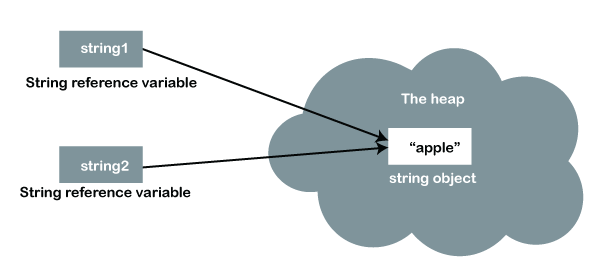What Is Unalterable Strings and How It Functions
In the realm of shows, comprehending the principle of immutable strings is vital for producing protected and durable applications. Unalterable strings refer to strings that can not be changed after they are produced, guaranteeing information honesty and predictability within the code.
The Basics of Unalterable Strings
Unalterable strings, as a basic concept in programs, are character series that can not be changed when they are created. This means that when a string is assigned a worth, that value can not be altered. In languages like Python and Java, strings are immutable objects, bring about numerous implications in regards to memory management and information honesty.
Among the key advantages of unalterable strings is that they offer a complacency in data adjustment. Since the content of an immutable string can not be modified, it makes certain that the original information remains intact, minimizing the threat of unintentional modifications throughout program execution (Why are strings immutable in Java?). This residential or commercial property likewise simplifies debugging procedures, as developers can trust that when a string is specified, its value will certainly not be unintentionally changed
In addition, unalterable strings help with effective memory use. When a new string is developed based on an existing one, rather than customizing the initial string, the brand-new value is saved separately. This approach improves efficiency by minimizing memory fragmentation and simplifying memory appropriation procedures. Generally, understanding the basics of unalterable strings is important for understanding programs ideas and optimizing code effectiveness.
Advantages of Unalterable Strings
Structure upon the security and efficiency advantages of unalterable strings, their benefits prolong to improving code integrity and simplifying simultaneous shows tasks. By being immutable, strings can not be modified after development, which removes the risk of unexpected modifications in the information they save. This fundamental immutability ensures that once a string is produced, its worth remains continuous throughout the program's implementation, decreasing the opportunities of insects created by unexpected alterations.
Furthermore, immutable strings contribute to code reliability by making it much easier to reason regarding the state of a program. Since strings can not be transformed, developers can rely on that a string will certainly constantly hold the very same value, simplifying debugging and maintenance initiatives. This predictability results in a lot more reputable and secure codebases.

Execution in Programs Languages
Within different shows languages, the incorporation of immutable strings is a fundamental facet that influences just how data is managed and controlled within code frameworks. The execution of immutable strings varies across various shows languages, with each language supplying its own mechanisms to support this concept.

In contrast, languages like C and C++ do not have integrated support for unalterable strings. Designers in these languages should manually implement immutability by imposing policies within their code to stop direct adjustments to string objects.
Ideal Practices for Functioning With Unalterable Strings
When managing immutable strings in programs languages like Java and Python, adhering to best techniques makes sure safe and secure and reliable data manipulation. One of the key finest techniques is to use StringBuilder or StringBuffer as opposed to directly controling strings, particularly when handling considerable concatenation operations. These courses provide mutable options for string manipulation, aiding to prevent unnecessary memory allotments and enhancing performance.
In addition, when functioning with sensitive data such as passwords or API secrets, it is vital to prevent saving them as simple text in immutable strings. Using safe and secure storage space mechanisms like char varieties or specialized libraries for handling delicate information helps mitigate safety threats linked with immutable strings.
Real-world Applications and Instances
Exploring sensible implementations of immutable strings in different sectors exposes their substantial effect on information integrity and system reliability. In the healthcare sector, unalterable strings play a crucial duty in ensuring the security and discretion of client information. By protecting against unapproved modifications to delicate info such as medical records and prescriptions, unalterable strings help keep conformity with strict privacy regulations like HIPAA.
Monetary establishments also benefit from the immutable nature of strings to boost the security of customer information and purchase documents. Unalterable strings aid prevent fraud and unauthorized alterations to monetary information, supplying a This Site robust defense versus cyber hazards and making certain the count on and self-confidence of clients.

Conclusion
To conclude, unalterable strings are dealt with and stable sequences of characters that use benefits such as string safety and security and improved performance in programs. They are executed in numerous shows languages to make sure information you could check here honesty and protection. Finest methods for collaborating with unalterable strings include preventing straight modifications and using methods that return brand-new string items. Real-world applications of immutable strings consist of information file encryption, caching, and string control jobs.
Immutable strings refer to strings that can not be modified after they are created, guaranteeing information honesty and predictability within the code. When a new string is created based on an existing one, instead than customizing the original string, the brand-new worth is stored individually.In languages like Java and Python, strings are unalterable by default, indicating that when a string object is produced, its worth can not be transformed - Why are strings immutable in Java?. Best practices for working with immutable strings consist of preventing straight adjustments and making use of techniques that return brand-new string items. Real-world applications of immutable strings include information file encryption, caching, and string control tasks